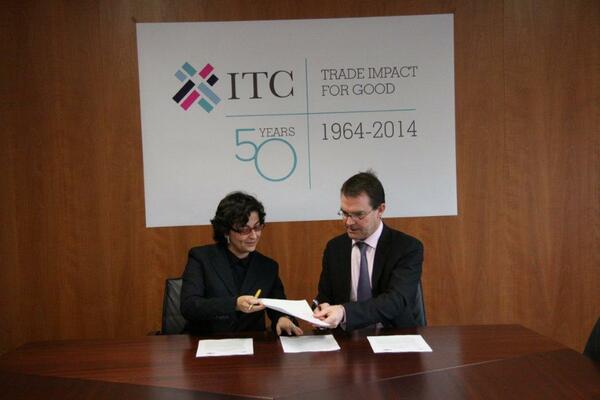
El ITC y CITES colaboran para mejorar los medios de vida de las comunidades rurales más desfavorecidas(en)
The International Trade Centre (ITC) and the Secretariat of the Convention on International Trade in Endangered Species of Wild Fauna and Flora (CITES) today agreed to collaborate to support countries in enhancing the livelihood benefits of rural communities involved in global wildlife trade. The collaboration will combine the expertise of two United Nations bodies to increase the understanding of international markets for products such as exotic skins, medicinal plants, natural fibres, precious timber, etc. The collaboration is expected to bridge the widening information gap between harvesters, producers, regulators, retailers and consumers by mapping and preparing in-depth analyses of the dynamics of value chains for selected species listed in CITES Appendix II.
The use of biodiversity from harvesting wild plants, animals and timber, including for medicines and fuel, is crucial to the livelihoods of millions of people across the world. This reliance leaves them highly vulnerable to the impacts of ecosystem degradation, climate change and biodiversity loss.
ITC Executive Director Arancha González said: 'Transparent and well regulated markets have a hugely important role to play in the survival of wild plants and animals. This partnership will strengthen ITC's efforts to build models of trade that incentivize communities and small and medium-sized enterprises to use and trade biodiversity products and services in a sustainable way.'
John E. Scanlon, CITES Secretary-General, said, 'Working with ITC will help us support countries to work transparently with partners right across the value chain to maximize the benefits for rural communities from legal, sustainable and traceable trade in CITES-listed species, in particular to support poverty eradication. It will also enable countries to ensure that CITES-listed species are conserved and that potential benefits for rural communities are realized through well regulated wildlife trade'.
ITC will work with CITES to build models for legal, sustainable and traceable trade that use economic incentives to foster sound management and sourcing of species listed in the CITES Appendices II http://www.cites.org/eng/app/appendices.php. The two organizations will facilitate capacity-building activities for poor rural communities to manage resources sustainably and will carry out research on global value chains for biodiversity-based products and services.
A particular focus will be placed on supporting analysis and capacity building leading up to the17thmeeting of the Conference of the Parties to CITES, which will be held in South Africa in 2016.
ITC is the joint agency of the World Trade Organization and the United Nations. ITC assists small and medium-sized enterprises in developing and transition economies to become more competitive in global markets, thereby contributing to sustainable economic development within the frameworks of the Aid-for-Trade agenda and the Millennium Development Goals.
About CITES: With 179 Member States, CITES remains one of the world's most powerful tools for biodiversity conservation through the regulation of trade in wild fauna and flora. Thousands of species are internationally traded and used by people in their daily lives for food, housing, health care, ecotourism, cosmetics or fashion.
CITES regulates international trade in over 35,000 species of plants and animals, including their parts and derivatives, ensuring their survival in the wild with benefits for the livelihoods of local people and the global environment. The CITES permit system seeks to ensure that international trade in listed species is sustainable, legal and traceable.
CITES was signed in Washington D.C. on 3 March 1973.
Please click here to download the PDF version.



